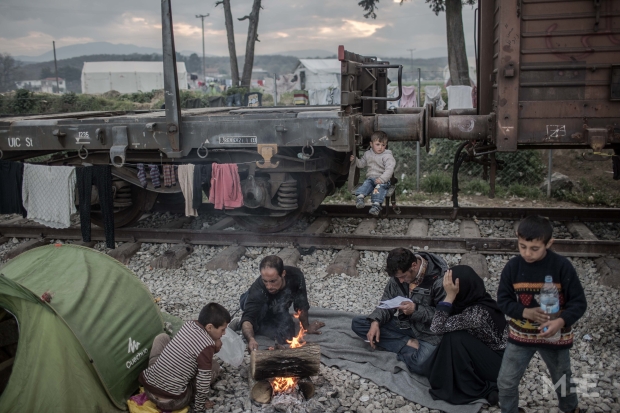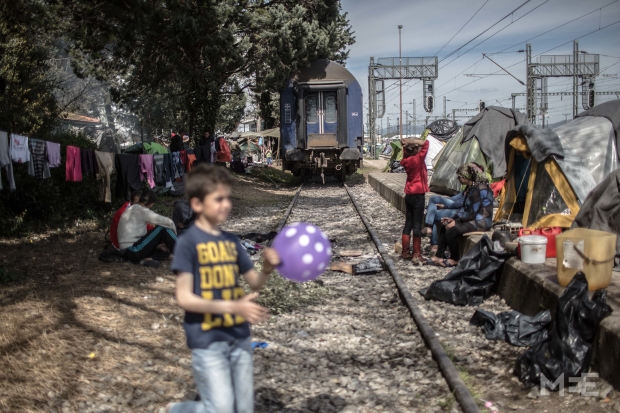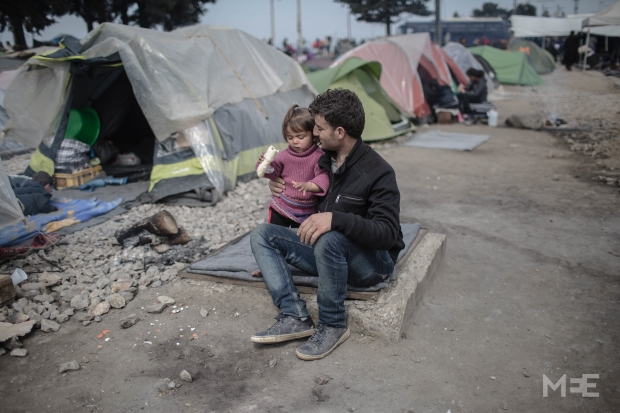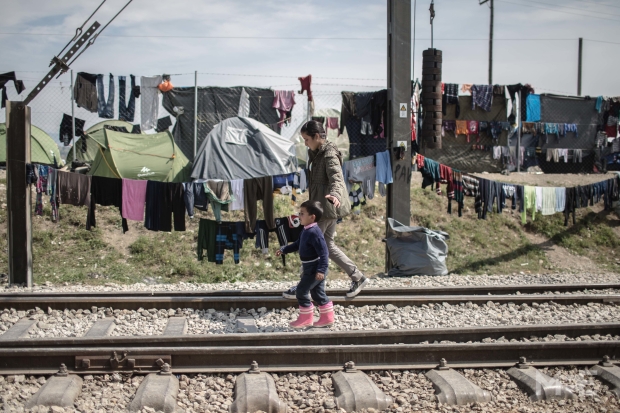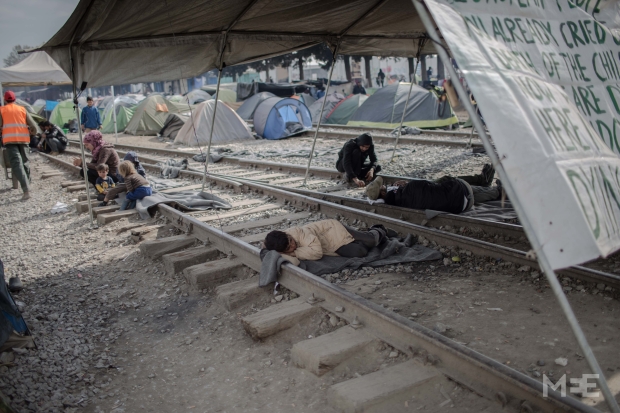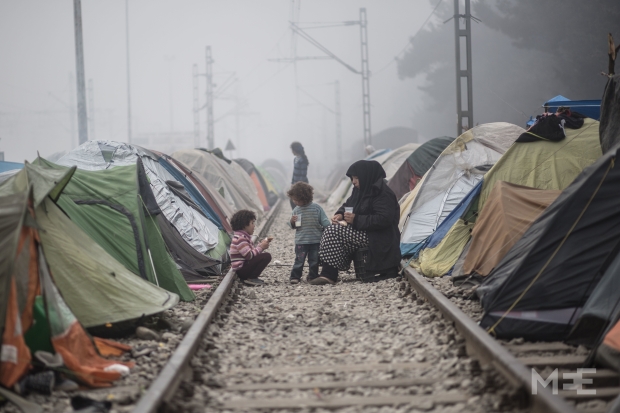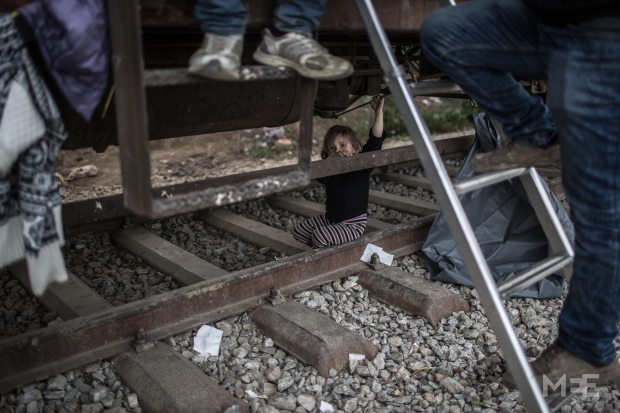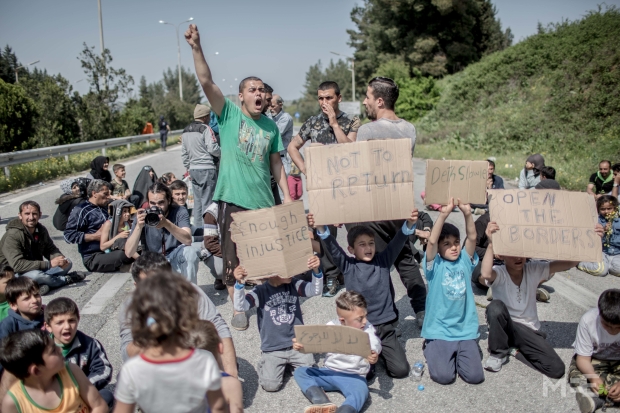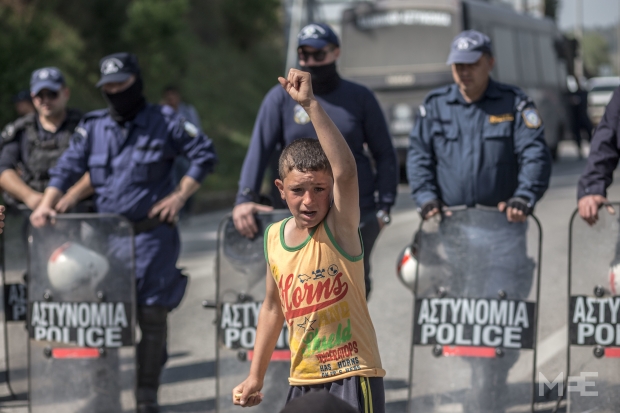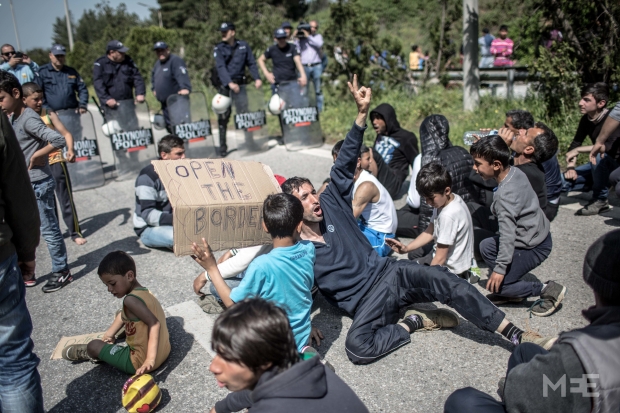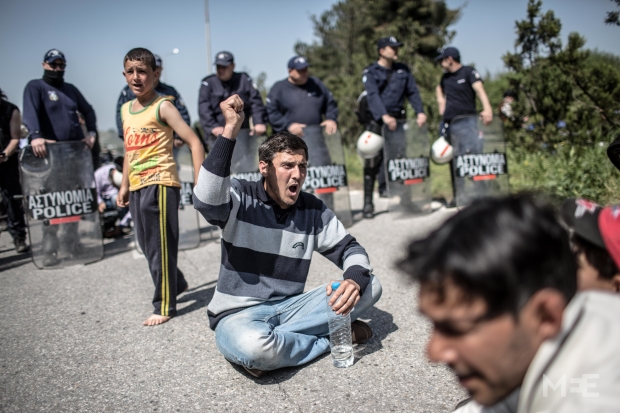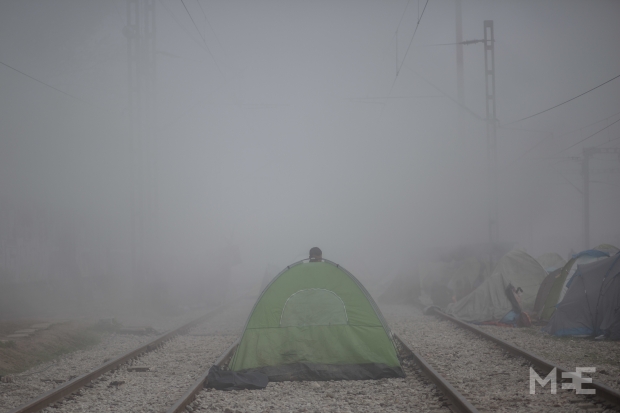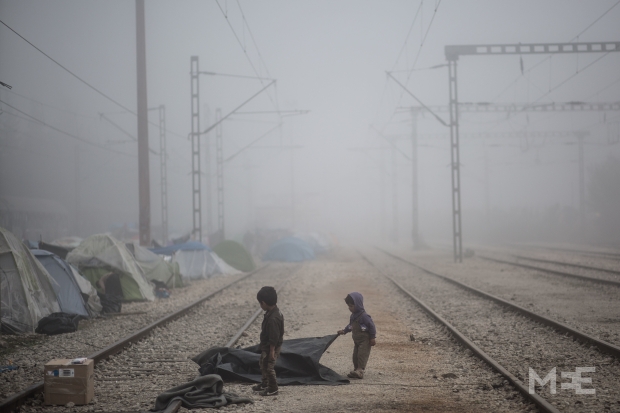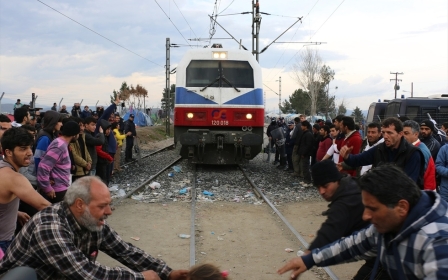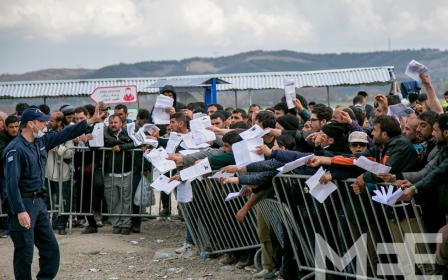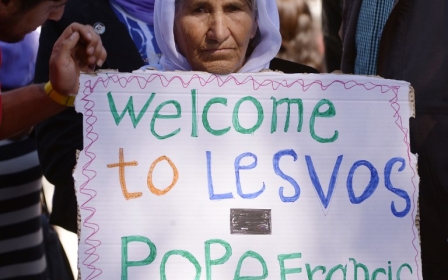IN PICTURES: The tracks of refugee tears at Greek-Macedonia border
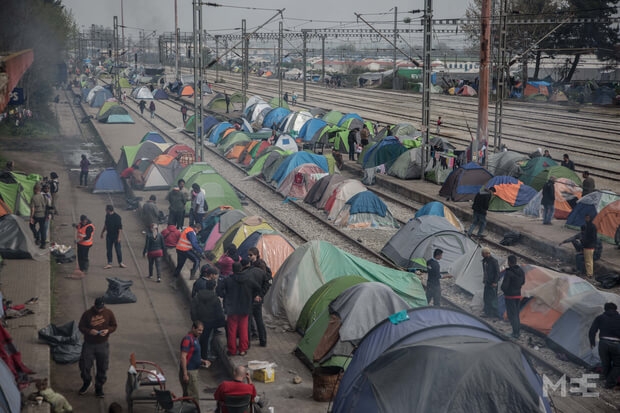
Train tracks that once clattered with the sound of international goods travelling between Greece and Macedonia are eerily quiet now. There isn't a fault on the line at this Balkan border post - rather the train services have been halted by a protest by young refugees and migrants that has continued for over a month now.
In an attempt to persuade authorities to open the Macedonian border with Greece and let them reach mainland Europe, hundreds of refugees from the Idomeni refugee camp have pitched tents directly on and around the train tracks, forcing its closure.
One Syrian activist, Mohammed, told Middle East Eye that the mini-blockade's main aim is to eventually have an economic impact on Macedonia, and other Balkan countries.
'Suffering follows us wherever we go'
Haleem, a father of five, is from the Syrian-Kurdish city of Kobane. The farmer fled his village when Islamic State (IS) militants attacked and destroyed his family home. He fled to the Turkish town of Suruc, and then Erbil in Kurdistan, but each time was forced to move on.
"Kobani has been ruined and anyway I didn't have money to rebuild my home. Turkey doesn't like Kurds. We were hoping to reach Germany where we heard there is no war, life is easy, and the German government helps refugees," Haleem said.
Following a perilous journey in a rubber boat from the Turkish city of Izmir, Haleem and his brother's family arrived safely on the Greek Island of Lesbos. From there they took another boat to the capital city Athens and then boarded a train to the city of Thessaloniki, in northern Greece. To reach the Macedonia border near the village of Idomeni, they walked approximately 40-kilometres and they have been there ever since.
"We didn't expect the border with Macedonia to be closed, and now we've been stuck here for more than 50 days. We started to sleep and live in a tent on the train tracks after some activists in the camp called for protests and a closure of the railway. When it rained our tent was swamped by mud and my children became sick. There is no place worse than this place, particularly for the children. It seems that suffering follows us wherever we go,” Haleem lamented.
Haleem's wife was eight months pregnant upon their arrival in Greece, and consequently was forced to give birth at the Idomeni camp.
"My wife gave birth in the tent three days ago, then one of the NGOs brought an ambulance and took her to the hospital to take care of her and the baby," Haleem said.
'We'll keep protesting until the EU finds a solution for us'
A few kilometres away from Idomeni refugee camp, dozens of refugees and migrants have also blocked the main highway near the northern Greek village of Idomeni at the Greek-Macedonian border, cutting off traffic between the two countries. This has angered travellers trying to continue their journey onto northern Europe.
"We will not let the highway, or the railway reopen and we will keep demonstrating until the EU finds us a solution or opens the border,” said Mohammed, a Syrian activist from Damascus who is one of the protest organisers.
On the highway, protesters chanted, “Open the border”, carrying placards with slogans like “Humanity has collapsed on the Balkan border” and “Enough Injustice."
Khadija, a 48 year-old Palestinian-Syrian woman from the Syrian refugee camp of Yarmouk, fled the war in Syria to join children who had already reached Germany. She left Turkey over 45 days ago.
“We are not occupying Greece, we only want to reach my children in Germany,” she said as she participated in the protest.
“I didn’t come to settle here. I am not hungry or naked. I am only a peaceful human. They are insulting and beating us. This is not a life,” Khadija added.
The decision by Macedonia on 9 March to close its border to migrants has left thousands of people stranded at the Greek transit camp.
The closure, following the lead taken by neighbouring countries, has effectively sealed the so-called western Balkan route, the main migration route that has been used by hundreds of thousands of migrants to reach countries in western Europe. Humanitarian workers have described the conditions at the camp as desperate, and it has been made worse by the border closure.
To this day, there are over 46,000 refugees and migrants in Greece, with over 11,000 in the makeshift camp of Idomeni after an agreement between EU and Turkey was implemented in March.
Middle East Eye propose une couverture et une analyse indépendantes et incomparables du Moyen-Orient, de l’Afrique du Nord et d’autres régions du monde. Pour en savoir plus sur la reprise de ce contenu et les frais qui s’appliquent, veuillez remplir ce formulaire [en anglais]. Pour en savoir plus sur MEE, cliquez ici [en anglais].


